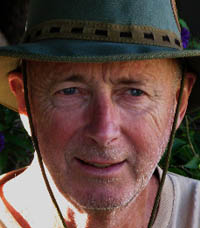Sea of change
The thought of leaving England for Durban in February, for the third time, to soak in the balmy Indian Ocean was pleasing enough. Equally exciting was the thought that I could be involved in some of the many changes that would envelope South Africa post-apartheid. For many years South Africans had been denied the chance to see their talented young athletes and sportsmen and women compete on the international stage. In 1970 South Africa had one of the finest Test Cricket teams ever and after drubbing Australia in the same year the cricket world would never see them in action again.Similarly, the mega concerts and plethora of great musical talent never reached South African audiences until Paul Simon’s ground-breaking tour in 1992.
“In 1985, singer-songwriter Paul Simon made a controversial nine-day visit to South Africa—a visit that some felt was in violation of a United Nations cultural boycott, but a visit that dramatically increased worldwide awareness of black South Africa’s rich musical traditions. Seven years later, with the U.N. boycott lifted, Simon returned to South Africa to play a historic concert in Johannesburg on January 11, 1992.” (See citation footnote)
There was another concert on that tour staged at King’s Park Stadium in Durban. I can’t recall how but somehow I got involved with the local concert administrators for the promoter Harvey Goldsmith and ended up with VIP access. Further concerts were staged at Port Elizabeth, Cape Town and Gaborone (Botswana). I believe that, all in all, around 200,000 people attended the brilliantly staged events.
An opportunity missed
In the 1980’s I dabbled in the music business and managed a small band in England for a while. I saw an opportunity and together with my business partner we explored the possibility of starting a venture to bring international stars to South Africa for the first time. There was talk of the very successful Electric Light Orchestra (ELO) coming but nothing had been formalised. So we contacted impresario Don Arden from England who had a 50% stake in the band. He was best known for overseeing the careers of rock groups like The Animals, Small Faces, ELO and Black Sabbath. Ozzy Osbourne (formerly of Black Sabbath) married Don’s daughter Sharon who eventually turned Ozzy and the family into a highly profitable business enterprise.
Notorious for his aggressive, but highly successful, business tactics Don was called “Mr. Big”, “The English Godfather” and “The Al Capone of Pop”. We visited him at his home in the South of England and he was receptive to the idea of organising a tour of South Africa with a collection of artists of international standing who had been very successful over the last 20 years or more. He contacted us later and said he had obtained commitments from Stevie Wonder, Tina Turner, ELO and UB40 to tour.
The ball was now firmly in our court to get the backing needed in South Africa. However, despite all our efforts, the ambitious project had to be aborted because the resources needed to stage the tour proved too much for backers to cough up.
Consolation
I consoled myself with the thought that maybe we were a little too early, as pioneers often are. The ensuing years have proved that there was, and still is, a big demand as South African’s have flocked in their thousands to see the big names in the music world who have added the Country to their World tours. Michael Jackson, Bryan Adams, U2, Coldplay, Peter Gabriel are just a few of many. Despite some understandable apprehension and scepticism South Africa has proved beyond doubt that it has the capability to stage the biggest events in the world. It has built world class stadiums and hosted World Cup Rugby, Cricket and Soccer during the period since the dismantling of Apartheid.
Footnote citation
Paul Simon returns to Johannesburg, South Africa, with the blessing of the U.N.. [Internet]. 2015. The History Channel website. Available from: www.history.com
[Accessed 20 Jan 2015].
James King is a writer, blogger and photo-artist. Born in England, he travelled to over 20 countries and in 1995 emigrated to South Africa. In 2011 James moved to Thailand, in semi-retirement, where he built and sold one house, renovated another, wrote various e-books and started a blog (jamoroki.com).

